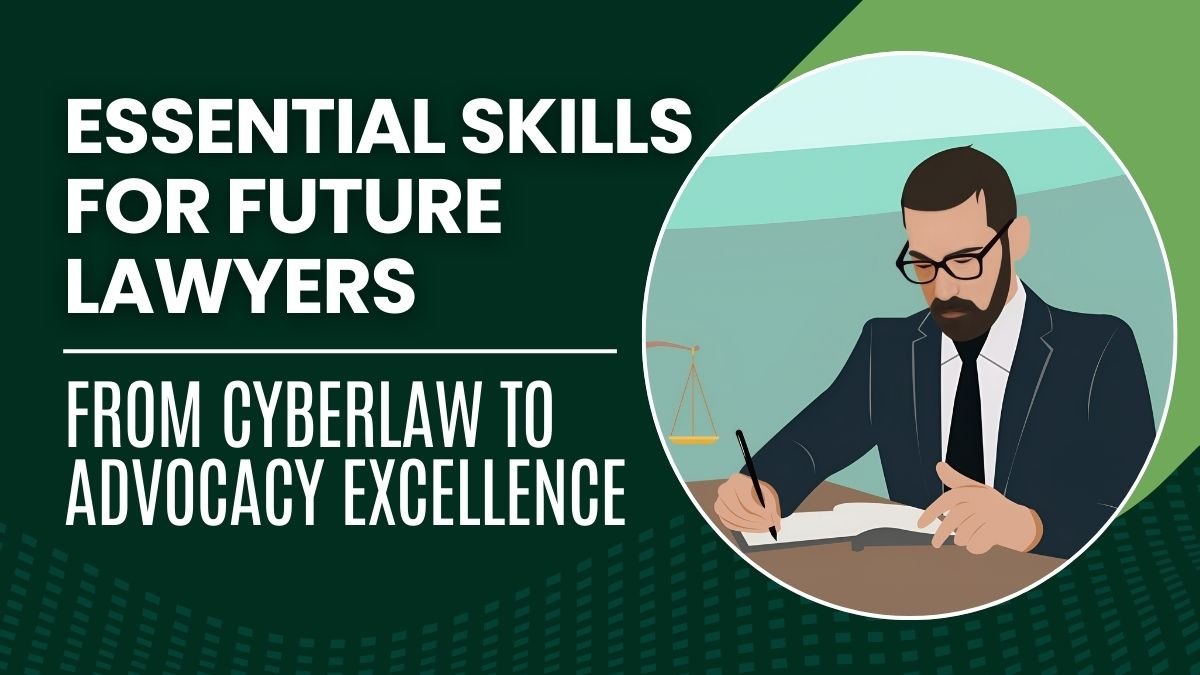The legal profession is constantly changing over time. While legal understanding and reasoning were once the key to success for lawyers, the profession has now become increasingly technological, digital, and multifaceted. New laws, the growing digital world, and complex socio-economic issues are demanding a broader set of skills from future lawyers. Simply preparing a case or presenting arguments in court is no longer sufficient. Today’s lawyers must possess analytical abilities, excellent communication skills, technical proficiency, professional ethics, client management, and strategic thinking. This is why a comprehensive understanding of the skills required for future lawyers is crucial.
Key Legal and Cognitive Skills
Analytical and Critical Thinking
Analyzing complex legal matters and drawing sound conclusions is essential for any lawyer. Understanding the nuances of each case, studying the available legal provisions, and arriving at logical conclusions form the foundation of a lawyer’s efficiency. For example, in a multi-layered legal case involving references to various legal provisions and historical cases, a lawyer must present a logical solution by combining facts and legal provisions in a balanced manner. This ability makes them effective in court and ensures the best results for clients.
Problem-Solving Ability
Lawyers must not only identify legal issues but also propose creative and effective solutions. Each case presents unique challenges, and providing solutions tailored to the client’s needs is a testament to a lawyer’s expertise. For example, in corporate disputes or digital trademark matters, traditional solutions may not work, but new approaches and strategies must be adopted. This skill not only increases client satisfaction but also strengthens a lawyer’s reputation.
Legal Research and Writing
Legal research and document preparation are the foundation of any lawyer. A successful lawyer must not only have a deep understanding of legal procedures but also know how to present the information gained from research in an effective and clear manner. This skill brings clarity and credibility to arguments, contracts, and other legal documents presented in court. Especially in complex matters such as financial fraud or international law, accurate and detailed research is key to success.
Lawyers and Communication Skills
Verbal and Written Communication
A lawyer’s success depends largely on their communication skills. They must be able to explain complex legal concepts in simple and clear language. Presenting effective arguments in court, explaining legal positions to clients, and successfully negotiating with various parties are key aspects. Knowledge of the law alone is not enough; presenting effectively is equally important.
Negotiation and Mediation
In the legal profession, lawyers must be adept at dispute resolution. In any case, reaching compromises in the client’s interests, resolving disputes through mediation, and simplifying legal complexities are crucial. This skill ensures success, especially in corporate disputes, family matters, or property disputes. A skilled mediator not only resolves disputes peacefully but also wins the client’s trust.
Advocate Excellence
Advocating excellence means presenting one’s arguments clearly, logically, and effectively. This skill helps one succeed in court, as well as in winning client trust and building a professional reputation. A lawyer must understand in every case that correct arguments are not only a guarantee of legal victory but also a testament to the client’s trust and credibility.
Technical and Special Skills
Cyber Law Expertise
As the digital world expands, cyber law is becoming increasingly important. Data security, online fraud, digital property rights, and technological disputes are areas in which future lawyers must acquire expertise. Without this, success in modern legal matters is difficult.
Proficiency in Legal Technology
Lawyers must be knowledgeable about technological tools. Effective use of case management software, digital research tools, and client interaction platforms increases their efficiency. In today’s world, technological proficiency gives lawyers a competitive edge.
Professional and Interpersonal Skills
Empathy and Interpersonal Skills
Understanding a client’s situation, building strong and trusting relationships with them, and collaborating with the team are essential for a lawyer. These skills make them not just a legal advisor but a trusted guide.
Professional Ethics and Integrity
Adhering to high ethical standards and maintaining professional integrity is the foundation of any lawyer’s reputation. Adherence to these standards not only ensures respect in court but also strengthens client trust.
Commercial Awareness
Understanding a client’s legal problems within their business and financial context enables a lawyer to provide practical and effective advice. This skill is especially important in corporate and financial matters.
Time Management and Organization
Managing time and resources is key to success in the legal profession. Lawyers must be able to efficiently manage their cases, documents, and deadlines. This makes them faster, more organized, and more effective.
Conclusion
Future lawyers now need not only legal knowledge but also technical proficiency, excellent communication, analytical abilities, problem-solving skills, expertise in cyber law, and professional ethics. All these skills together make them successful in the complex legal world. Lawyers who master all these areas will make their mark not only in litigation but also in social, technological, and business challenges.
It is time for today’s young lawyers to develop these skills so that in the future they can not only provide superior service to their clients but also reshape the entire legal profession.
